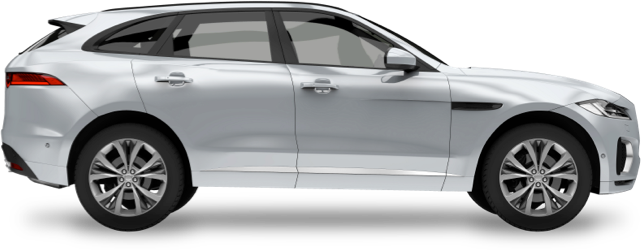- Over 1 million successful rentals
Car Hire South Africa
Save time and money. We compare the offers of car rental companies in South Africa on your behalf.
- Free cancellation Up to 48 hours prior to the scheduled pick up time
- Best price guarantee Have you found a better price? Let us know and we will make you a better offer.
- 24000+ pick-up locations Locations around the world
Compare Car Hire
Carrentals.co.uk offers simple and straightforward car hire comparison services. We don't add a penny to your quotes!
Car rental offers in South Africa
Whether you're looking for a small rental car or a station wagon for the entire family, we will always have a suitable vehicle for the lowest price. Below are some examples from our selection in South Africa.

-
FireFly Car Rental From£ 8 /day -
Hertz From£ 11 /day -
Tempest From£ 11 /day

-
FireFly Car Rental From£ 8 /day -
Hertz From£ 11 /day

-
First Car From£ 11 /day

-
Woodford Car Rental From£ 8 /day

-
Woodford Car Rental From£ 9 /day -
Tempest From£ 10 /day -
Europcar From£ 11 /day

-
FireFly Car Rental From£ 13 /day -
Hertz From£ 15 /day

-
U-Save Auto Rental From£ 9 /day -
Green Motion From£ 9 /day -
First Car From£ 11 /day

-
Green Motion From£ 9 /day -
Bluu Car Rental From£ 13 /day

-
First Car From£ 13 /day

-
U-Save Auto Rental From£ 9 /day -
Green Motion From£ 9 /day -
Enterprise From£ 14 /day

-
FireFly Car Rental From£ 10 /day -
Alamo From£ 12 /day -
Hertz From£ 12 /day

-
First Car From£ 13 /day -
Budget From£ 15 /day

-
Tempest From£ 10 /day -
First Car From£ 20 /day

-
Tempest From£ 10 /day -
U-Save Auto Rental From£ 11 /day -
Green Motion From£ 11 /day

-
Bluu Car Rental From£ 14 /day -
FireFly Car Rental From£ 14 /day -
Hertz From£ 16 /day

-
U-Save Auto Rental From£ 10 /day -
Green Motion From£ 11 /day

-
U-Save Auto Rental From£ 10 /day -
Green Motion From£ 11 /day -
Budget From£ 11 /day

-
Avis From£ 15 /day

-
FireFly Car Rental From£ 10 /day -
Tempest From£ 11 /day -
Woodford Car Rental From£ 12 /day

-
FireFly Car Rental From£ 10 /day -
Bluu Car Rental From£ 14 /day -
Alamo From£ 15 /day

-
Bluu Car Rental From£ 14 /day -
FireFly Car Rental From£ 16 /day -
Budget From£ 17 /day

-
Green Motion From£ 11 /day -
U-Save Auto Rental From£ 11 /day

-
Tempest From£ 11 /day -
U-Save Auto Rental From£ 12 /day -
Green Motion From£ 12 /day

-
First Car From£ 14 /day

-
Green Motion From£ 12 /day -
First Car From£ 13 /day

-
First Car From£ 13 /day -
Sixt From£ 17 /day

-
First Car From£ 15 /day -
Sixt From£ 22 /day

-
Green Motion From£ 11 /day -
U-Save Auto Rental From£ 13 /day

-
Green Motion From£ 12 /day -
U-Save Auto Rental From£ 13 /day -
Budget From£ 19 /day

-
Budget From£ 20 /day -
Avis From£ 20 /day -
Tempest From£ 21 /day

-
Tempest From£ 13 /day -
Woodford Car Rental From£ 15 /day -
Budget From£ 19 /day

-
Green Motion From£ 13 /day -
Tempest From£ 24 /day

-
Avis From£ 21 /day -
First Car From£ 22 /day -
Sixt From£ 23 /day

-
U-Save Auto Rental From£ 16 /day -
Green Motion From£ 17 /day -
Woodford Car Rental From£ 18 /day

-
FireFly Car Rental From£ 19 /day -
Hertz From£ 22 /day

-
First Car From£ 21 /day

-
Woodford Car Rental From£ 15 /day

-
Green Motion From£ 20 /day -
Tempest From£ 24 /day -
Europcar From£ 31 /day

-
Alamo From£ 24 /day -
Budget From£ 64 /day -
Avis From£ 64 /day

-
Green Motion From£ 21 /day

-
Green Motion From£ 22 /day

-
Alamo From£ 25 /day -
Enterprise From£ 29 /day -
FireFly Car Rental From£ 31 /day

-
Alamo From£ 24 /day -
Avis From£ 61 /day -
Budget From£ 64 /day

-
Bluu Car Rental From£ 26 /day

-
Alamo From£ 24 /day -
FireFly Car Rental From£ 27 /day -
Enterprise From£ 28 /day

-
Green Motion From£ 26 /day -
U-Save Auto Rental From£ 26 /day

-
Green Motion From£ 26 /day

-
Hertz From£ 35 /day -
FireFly Car Rental From£ 37 /day -
Sixt From£ 55 /day

-
Woodford Car Rental From£ 27 /day -
Europcar From£ 44 /day -
Sixt From£ 49 /day

-
Woodford Car Rental From£ 27 /day -
Budget From£ 55 /day -
Avis From£ 60 /day

-
Alamo From£ 39 /day -
Enterprise From£ 46 /day -
Hertz From£ 49 /day

-
Hertz From£ 28 /day -
Woodford Car Rental From£ 35 /day -
FireFly Car Rental From£ 37 /day

-
Green Motion From£ 28 /day -
Tempest From£ 43 /day -
Alamo From£ 44 /day

-
FireFly Car Rental From£ 42 /day -
Hertz From£ 48 /day -
Alamo From£ 51 /day

-
Hertz From£ 26 /day -
FireFly Car Rental From£ 29 /day -
Tempest From£ 34 /day

-
U-Save Auto Rental From£ 26 /day -
Green Motion From£ 35 /day

-
FireFly Car Rental From£ 30 /day -
Hertz From£ 34 /day -
Alamo From£ 41 /day

-
U-Save Auto Rental From£ 26 /day -
Green Motion From£ 35 /day

-
Hertz From£ 36 /day

-
Hertz From£ 31 /day -
Green Motion From£ 67 /day

-
Woodford Car Rental From£ 35 /day -
Alamo From£ 47 /day -
Enterprise From£ 50 /day

-
Alamo From£ 39 /day -
Enterprise From£ 46 /day -
Budget From£ 63 /day

-
Alamo From£ 37 /day -
Enterprise From£ 40 /day -
Budget From£ 60 /day

-
Green Motion From£ 51 /day

-
Woodford Car Rental From£ 27 /day -
Alamo From£ 37 /day -
Enterprise From£ 40 /day

-
Alamo From£ 33 /day -
Enterprise From£ 40 /day -
Hertz From£ 44 /day

-
Alamo From£ 39 /day -
Enterprise From£ 46 /day -
Budget From£ 62 /day

-
Alamo From£ 39 /day -
Enterprise From£ 46 /day -
Hertz From£ 49 /day

-
FireFly Car Rental From£ 40 /day -
Hertz From£ 47 /day -
Sixt From£ 47 /day

-
FireFly Car Rental From£ 44 /day -
Hertz From£ 51 /day -
Sixt From£ 55 /day

-
Bluu Car Rental From£ 59 /day -
Green Motion From£ 61 /day

-
Green Motion From£ 60 /day

-
Bluu Car Rental From£ 67 /day

-
Sixt From£ 293 /day

-
Green Motion From£ 15 /day -
U-Save Auto Rental From£ 16 /day -
Bluu Car Rental From£ 50 /day

-
Woodford Car Rental From£ 15 /day -
Alamo From£ 15 /day -
U-Save Auto Rental From£ 16 /day

-
Alamo From£ 20 /day -
Enterprise From£ 21 /day -
National Car Rental From£ 25 /day

-
Alamo From£ 16 /day -
Enterprise From£ 20 /day -
FireFly Car Rental From£ 21 /day

-
Alamo From£ 17 /day -
Enterprise From£ 20 /day -
Avis From£ 61 /day

-
Alamo From£ 22 /day -
Enterprise From£ 24 /day -
Avis From£ 64 /day

-
Woodford Car Rental From£ 19 /day -
U-Save Auto Rental From£ 20 /day -
Green Motion From£ 20 /day

-
Alamo From£ 24 /day -
Enterprise From£ 26 /day -
National Car Rental From£ 27 /day

-
Alamo From£ 25 /day -
Enterprise From£ 28 /day -
National Car Rental From£ 29 /day
Popular cities in South Africa
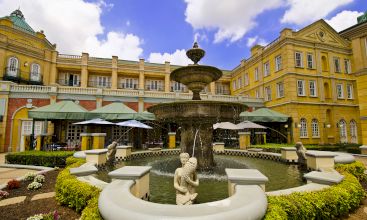
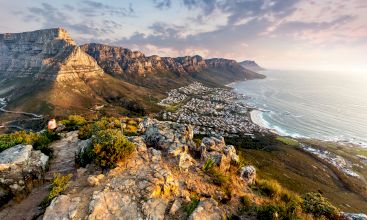
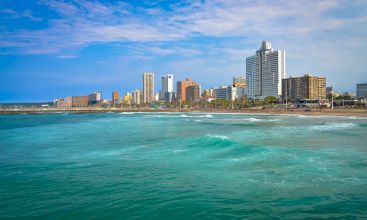
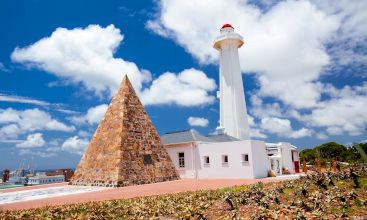
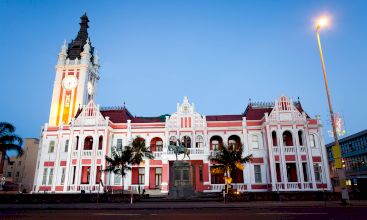
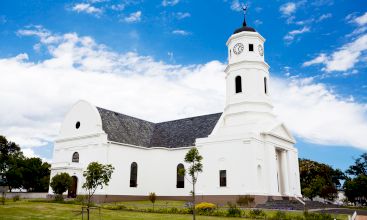
Popular rental locations in South Africa
-
Car Hire Johannesburg International AirportFrom
£ 8 /day -
Car Hire Cape Town Airport - International TerminalFrom
£ 8 /day -
Car Hire King Shaka International AirportFrom
£ 8 /day -
Car Hire Port Elizabeth AirportFrom
£ 8 /day -
Car Hire East London AirportFrom
£ 8 /day -
Car Hire George AirportFrom
£ 8 /day -
Car Hire Kruger Mpumalanga International AirportFrom
£ 8 /day -
Car Hire Bloemfontein Airport
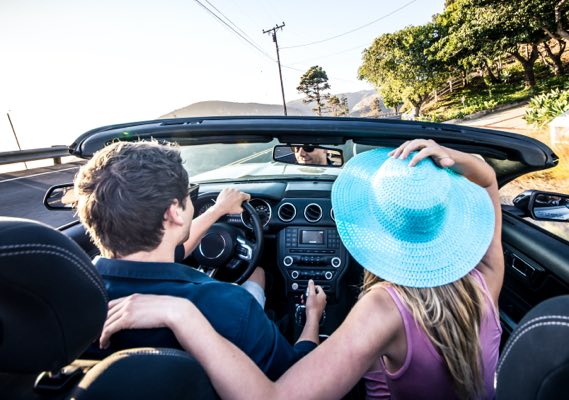
When to book a rental car in South Africa
South Africa - When is the most affordable time to rent a mini class car?
At this destination (South Africa), September is the most affordable time to rent a mini class car with an average daily rate of
South Africa - When is the most affordable time to rent a economy class car?
At this destination (South Africa), September is the most affordable time to rent a economy class car with an average daily rate of
South Africa - When is the most affordable time to rent a compact class car?
At this destination (South Africa), May is the most affordable time to rent a compact class car with an average daily rate of
South Africa - When is the most affordable time to rent an intermediate class car?
At this destination (South Africa), September is the most affordable time to rent a intermediate class car with an average daily rate of
South Africa - When is the most affordable time to rent a standard class car?
At this destination (South Africa), September is the most affordable time to rent a standard class car with an average daily rate of
South Africa - When is the most affordable time to rent a full-size car?
At this destination (South Africa), September is the most affordable time to rent a full-size class car with an average daily rate of
South Africa - When is the most affordable time to rent a luxury car?
At this destination (South Africa), September is the most affordable time to rent a luxury class car with an average daily rate of
South Africa - When is the most affordable time to rent a station wagon?
At this destination (South Africa), December is the most affordable time to rent a station wagon with an average daily rate of
South Africa - When is the most affordable time to rent a SUV?
At this destination (South Africa), September is the most affordable time to rent an SUV with an average daily rate of
South Africa - When is the most affordable time to rent a MPV?
At this destination (South Africa), September is the most affordable time to rent an mpv with an average daily rate of
South Africa - When is the most affordable time to rent a minivan?
At this destination (South Africa), September is the most affordable time to rent a minibus with an average daily rate of
South Africa - When is the most affordable time to rent a delivery van?
At this destination (South Africa), May is the most affordable time to rent a van with an average daily rate of
Car rental locations in South Africa
Carrentals.co.uk compares rental car prices at the following destinations
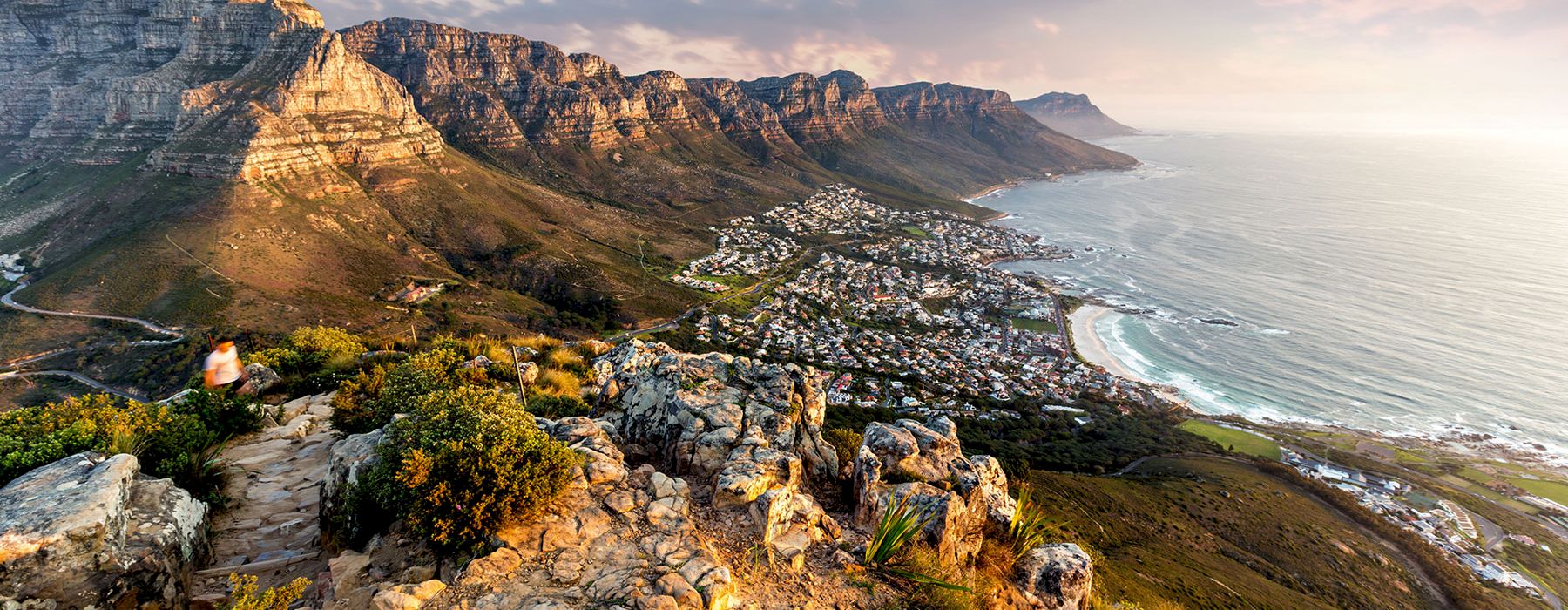
South Africa Guide
South Africa is best explored by rental car. Carrentals.co.uk has over 115 pick-up locations in South Africa. This means there is always a pick-up location close to your destination.
Most popular car hire locations in South Africa
Driving
Southern Africa's most popular country is rich with different cultures. Its interesting colonial history has resulted in it being host to a mix of ethnic groups that are indigenous natives or have European ancestry. By car, tourists can explore the super cities in their entirety or hit the road to experience what are possibly the world's most beautiful landscapes.
Driving Tips for South Africa
The country boasts a comprehensive road network that connects all of the large cities. Roads are well-maintained but can be difficult to navigate in rural areas given their unpaved condition. Outside of urban areas, drivers should beware of animals crossing the road. Signage is sufficient.
Driving licences: a UK licence is accepted but it is also advised to arrange an International Driving Licence prior to travelling here.
Which side does South Africa drive on: the left.
Speed limits:
Highways: 75mph (120kph)
National or provincial roads: 62mph (100kph)
Urban roads: 37mph (60kph)
Alcohol limits: 0.05 per cent, compared to Britain’s limit of 0.08 per cent. Consequences for exceeding the limit include fines, licence suspension and even prison time in some cases.
Driving age: 18 years; 21 years to hire a car.
Seatbelts: must be worn by everyone travelling in the vehicle. A child restraint or child seat must be used for young children if available.
Mobile phones and GPS: drivers cannot use their mobile phones while driving if they don't have a hands-free kit. GPS devices may be used and can help with navigation in rural areas where signage may be lacking.
Cost of fuel in South Africa: on par with the UK.
Car hire and fuel payment: customers will oftern be required to have a credit card to hire a car. They are used to hold an amount against until the car is returned, check your rental agreement before travelling.. Fuel stations accept credit cards as well as cash.
Insurance: options range from third-party cover to Collision Damage Waiver, with excess cover advised for those renting vehicles.
Traffic and parking: parking at shopping centres where abundant spaces are available and security is good is advised. Most street parking spaces have pay and display systems and are also watched by guards who might ask for a tip for their services. Street parking must be done facing the same way as the flow of traffic or a fine may be issued. Traffic congestion can be an issue during morning and evening rush hours in cities.
Transport
Trains
Passenger Rail Agency of South Africa (PRASA) is the country's national rail operator and connects all of the big cities as well as some lesser-known destinations. A typical fare between Cape Town and Johannesburg can cost as little as £40. More comfortable but more expensive rail travel is supplied by the likes of Shosholoza Meyl and Premier Classe.
Taxis
Taxis are one of the safest ways to travel in South Africa, especially around the country's major cities. It is best to travel with a driver that is trusted by your hotel. Most vehicles are metered and charge around £0.30 per kilometre.
Buses
Greyhound Buses can be caught between major South African cities such as Johannesburg, Cape Town and Durban. Intercape Mainliner, Translux and SA Roadlink are some of the other major players. A typical fare between two South African cities is around £50 one-way.
Ferries
Cape Town is sometimes offered as a destination by large cruise companies such as Princess Cruises but domestic boat travel is uncommon.
Airports
While South Africa is home to 10 international airports, the most commonly used hubs are in Cape Town and Johannesburg, while Durban International Airport is a third option. It is possible to fly here directly from the UK with the likes of British Airways and Emirates, with a typical return fare costing between £500 and £700. Domestic air travel is supplied by carriers including Comair and South African Airways.
Explore
Exploring South Africa
The majority of travellers to South Africa begin their explorations either in Cape Town or Johannesburg. Cape Town is Africa's southernmost city and is renowned for its natural beauty. Holidaymakers can enjoy excursions to historical neighbourhoods such as Bo-Kaap and the infamous Robben Island where Nelson Mandela was once imprisoned. Those fond of the outdoors often head to Table Mountain.
Johannesburg is the largest city in the country and is full of museums, theatres and restaurants that are among the most highly regarded in Africa. Tours of the townships are popular here, as are trips to the local reserves and wildlife parks.
Durban is South Africa's third city and is famous for its cuisine due to the huge South Asian population it has within its confines. Tourists love mixing city life with beach life by spending time along the Golden Mile. Wildlife lovers make sure they fit in a visit to Crocodile Creek.
Parties that are mostly interested in South Africa's landscape and wildlife have Kruger National Park high on their itineraries. This world-famous attraction allows visitors to get as up close and personal to some of Africa's most famous species including giraffe, cheetah and elephants.
Our Travel Editor’s Recommended Drives
Cape Town to the Tsitsikamma forest – the Garden Route takes drivers along the N2 for a scenic 373 miles (600kms) cruise. Along the way, views of the coast can be enjoyed, as can wild flowers, mountains and indigenous forests. Outdoor activities are a possibility, as are stop-offs in quaint towns such as Knysna and Oudshoorn.
Circular Peninsular route – beginning in Cape Town, this drive runs along the N2 and then towards the east coast, with towns such as Kalk Bay passed through. Trips to the Cape Point Nature Reserve and Table Mountain are there for the taking.
Chapman’s Peak Drive – this route starts in Hout Bay before it extends to Chapman’s Point while passing through Noordhoek. Beautiful views are on offer and hiking or picnicking are possibilities.
Holidays and Festivals
Human Rights Day (21 March)
Easter (March/April)
Youth Day (16 June)
Reconciliation Day (16 December)
Christmas Day (25 December)
Weather
South Africa's climate varies according to region. Northwestern parts experience semi-desert conditions and high temperatures as the east coast enjoys a sub-tropical climate. Rainfall is much higher from October to February (summer), when temperatures top 25°C.
Practical Stuff
South Africa Travel Tips
Tourists are attracted to the country due to the variety it offers. Here, beautiful beaches, ethnic and cultural diversity, and unique wildlife can all be enjoyed on the same trip. Safaris are hugely popular, as are the historical monuments found in the cities.
South Africa contact numbers
Country code - (+27)
Ambulance - 10117
Fire - 1011
Netcare - 911 082 911
National Tourism Office – +27 1189 53000
British Embassy – +27 12 421 7500
American Embassy – +27 12 431 4000
Irish Embassy – +27 12 342 5062
Australian Embassy – +27 12 432 6000
The National Tourism and Safety Line - +27 83 123 2345
Police - 1011
Money matters
South Africa uses the rand, which consists of 100 cents. Banks can exchange travellers’ cheques and ATMs are readily available and well-guarded. Because service charges aren't added to bills, tipping is expected. Tour guides, bar tenders, car guards and porters all expect a tip.
Health and safety
Government hospitals are best avoided by those that require medical care but private hospitals match international standards. Most regions have tap water that is safe to drink, although it's always best to ask first. South Africa has one of the world's highest HIV infection rates and malaria is also a threat.
Fitting in…
People shake hands or hug one another as a greeting, depending on how close they are. South Africans are generally warm and hospitable towards tourists, although commenting on the country's history or politics should be avoided in order not to cause offence.
Visas for South Africa
Tourists from countries such as Britain, the US and Canada are able to stay for up to 90 days without having to arrange a visa. Nationals of other countries should contact their nearest South African embassy for details.
Electricity
The electricity here operates at 220 Volts/50 Hertz. Plugs are three pronged and round pinned.
Business hours
Businesses: 09:00 to 15:00, Monday to Friday
Government offices: 09:00 to 15:00. Monday to Friday
Shops: 09:00 to 15:00, Monday to Saturday
Banks: 09:00 to 15:30, Monday to Friday, 09:00 to 12:00, Saturday
Helpful phrases
Sawubona - Hello
Uphumaphi? - Where are you from?
Unjani? - How are you?
Ngubani igama lakho? - What is your name?
Ukhuluma isiNgisi na? - Do you speak Zulu?
Angizwa - I don’t understand
Kubiza malini? - How much is this?
Practical information
-
CurrencySouth African rand
-
Driving directionLeft
-
City speed limit60 km/h
-
Freeway speed limit100 km/h
-
LanguageEnglish, Tswana, Southern Sotho, Afrikaans, Southern Ndebele, Swati, Tsonga, Venda, Xhosa, Zulu
-
Popular car categoryEconomy
What most people want to know
The following questions and answers are a selection of the most popular questions. If you do not find the answer to your question, have a look at the Frequently Asked Questions page or contact us.
- Woodford Car Rental
- Alamo
- Thrifty
- Budget
- Bluu Car Rental
- Sixt
- First Car
- Enterprise
- Europcar
- National Car Rental
- Bidvest Car Rental
- Avis
- Hertz
- FireFly Car Rental
- Keddy By Europcar
- Green Motion
- U-Save Auto Rental
- Carwiz rent a car
- Tempest
- Bobo Campers
- Britz Motorhomes
- Bushlore Africa
- KEA Campers
- Maui Motorhomes
- Dollar Rent a Car
